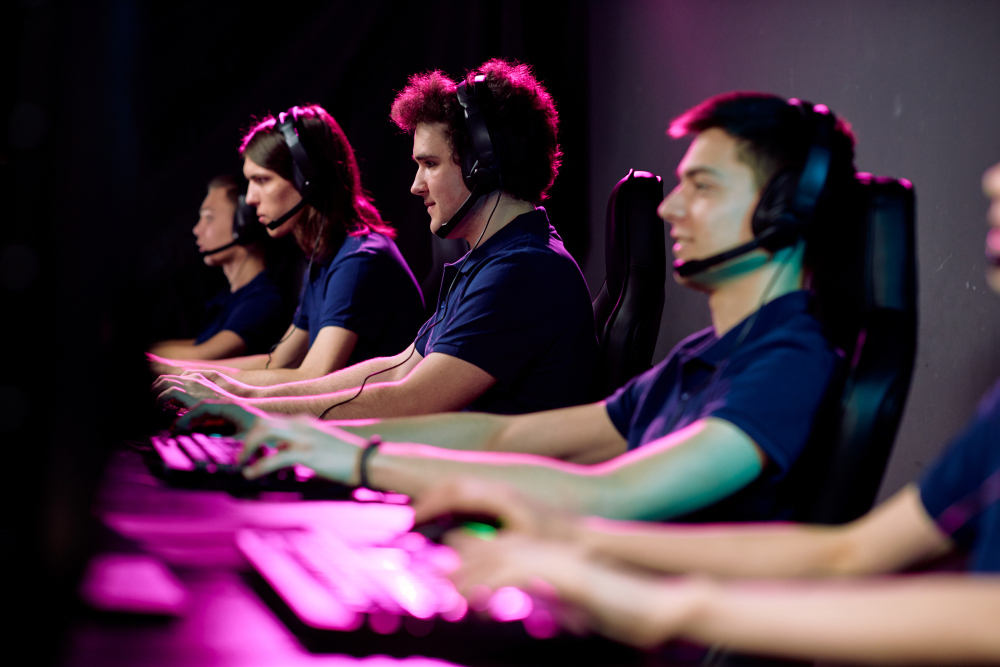Games offer more than just a source of entertainment and passing the time; they’re a training ground for real-life skills. One of the most powerful takeaways from online gaming is the ability to be patient and plan ahead. Whether it is building your skills, winning a game, or experiencing a loss, if you are self-aware when playing online games, you will often come across several life lessons.
No one becomes a pro at gaming in one day, nor can people win a game without a proper plan. However, do you realise that patience and planning are two life skills that are essential for daily life? Online gaming can teach people life lessons, often subconsciously, and especially if people are self-aware.
Let’s explore how online gameplay, such as chess, strategy games, and rummy online, nurtures these traits and why it matters for both kids and adults.
What Makes Online Games a Good Teacher?
Online games often simulate real-life scenarios while having little to no real-life consequences. For instance, you are playing online chess. By being hasty and not being able to plan well, you lose a round to your opponent. However, this does not have much impact other than a slightly bruised ego. Similarly, you play an online rummy game, use the patience and planning that you loss in chess taught you and win. This will give you a better leaderboard position and some game tokens.
However, the true reward you get is the same in both a win and a loss. This means strategic thinking, timing, and careful planning, which are all life skills. Online games help you build your patience through trial, error, and long-term objectives. With little to no impact on your day-to-day happenings, online gaming teaches the biggest life lessons – patience and planning.
The Psychology of Patience and Planning in Games
Let’s look into a real-life online gaming scenario:
You open an account on an online rummy game platform. As a novice, you will not have the expertise that it takes to win. Thus, you will learn through the tutorials, play practice matches, and slowly build your skills. Once you start winning the practice matches, you participate in beginner tournaments. When you are confident in your skills, you join the pro tournaments. Plus, you do not win every game you play, but with practice, you certainly get better.
This entire process is one of delayed gratification, where players slowly build their skills and wait for the right time to obtain a better outcome. People also learn more about the risk-reward dynamics and how to make the right decisions during a game over time. Further, the satisfaction from strategic victories is rewarding and something that becomes a real-life takeaway.
This encourages people to practice patience and planning in their daily lives, slowly ingraining this into their psychology.
Game Types That Reinforce These Skills
To elaborate, how patience and planning are reinforced by each game type can be listed as below:
| Game Type | How It Teaches Patience | How It Encourages Planning |
| Chess | Waiting for the opponent’s moves | Thinking several moves ahead |
| Turn-based RPGs | Waiting for your turn | Managing skill sets and tactics |
| iGaming and Mobile Games | Time-gated challenges | Resource and inventory planning |
| Card Games (e.g., online rummy game) | Drawing/discarding cycles | Set-building strategy |
| Strategy Games (e.g., Civ) | Building empires over time | Long-term economic and military planning |
Table: The Way Online Games Help People Practice Patience and Planning
Real-Life Benefits of These Online Gaming Lessons
As people engage more with games like chess, RPGs, and rummy online, they gain the following real-life benefits:
- Improved impulse control
- Better problem-solving under pressure
- Greater resilience, memory, and focus
- Skill in anticipating consequences
- Improved cognitive skills
- Fast and efficient decision-making skills
- Increased creativity and imagination
- Stress relief, relaxation, and recreation
Further, these games also offer the following social benefits:
- Better teamwork and communication skills
- Learning how to collaborate and resolve conflict
- Gaining an awareness of others’ cultures and perspectives
Thus, online gaming in moderation is arguably one of the most beneficial activities, both socially and cognitively.
How Parents and Educators Can Leverage These Games
Though many believe that online gaming can take up a lot of time and energy when it comes to children, the life skills taught by these games translate to children as well. To teach strategy, many teach their children how to play chess and Sudoku. This rings the same for online chess and other games as well.
Parents and educators can look into how they can introduce age-appropriate games that have strategic elements. This helps build their cognitive and problem-solving skills, teaching them how to work with peers and spatial intelligence.
Further, these games encourage reflective play. Thus, kids can understand the why behind their actions, learning how to curb impulsive actions. Adventure-based games can also provide experiences similar to real-life challenges, helping them gain an idea of actions and their consequences without any adverse impact.
Wrapping Up
Games help build patience and planning by encouraging delayed gratification, strategic decision-making, and thinking ahead, all of which are valuable skills in today’s fast-paced world. From grown-ups to children, online games offer something to everyone. With gaming, people learn to think beyond the screen, taking their lessons to real life, building their patience, and approaching things with proper planning.
Build Discipline With Online Gaming
Want to enjoy some light entertainment with online gaming while building discipline, patience, and planning skills? Take a pick from our list of game types that offer life lessons, download a game of your choice, and start playing.

